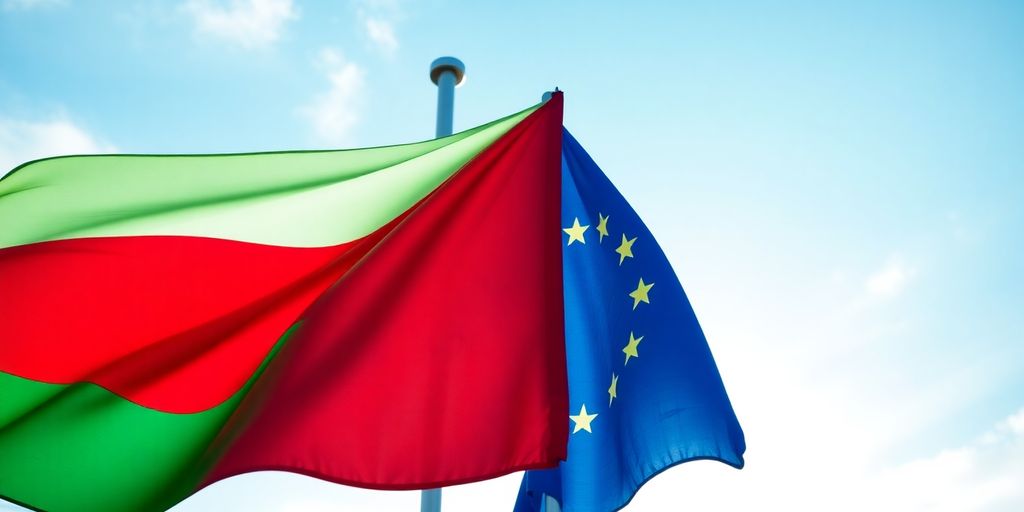Bulgaria has received official approval from the European Commission and the European Central Bank to adopt the Euro on January 1, 2026. This significant step towards deeper European integration has, however, ignited widespread public debate and protests across the nation, highlighting concerns over economic stability and national sovereignty.
Bulgaria Cleared for Eurozone Entry
On June 4, 2025, the European Commission and the European Central Bank (ECB) formally approved Bulgaria’s readiness to join the Eurozone. This decision marks a pivotal moment for the Balkan nation, which has been an EU member since 2007 and has diligently worked to align its economy with Eurozone standards. The assessment confirmed that Bulgaria meets the four nominal convergence criteria:
- Currency stability
- Inflation control
- Sound public finances
- Favorable interest rates
ECB Chief Economist Philip Lane commended Bulgaria’s commitment, stating, "The government in Sofia has shown tremendous commitment to implementing the necessary changes." This approval paves the way for Bulgaria to become the 21st EU member state to adopt the common currency.
Economic Implications and Benefits
Adopting the Euro is expected to bring several economic advantages for Bulgaria:
- Reduced Currency Risk: Access to the ECB’s monetary policy and financial backstops will mitigate currency crises.
- Lower Interest Rates: Government and business loans are anticipated to have lower interest rates due to the ECB’s credibility.
- Boosted Trade and Tourism: Simplified cross-border transactions will facilitate trade and tourism with other Eurozone countries, enhancing investor confidence. The tourism sector, in particular, is already accustomed to Euro-based transactions.
- Increased Foreign Investment: Deeper financial integration under ECB oversight is expected to attract more foreign direct investment.
Bulgarian National Bank Governor Dimitar Radev has downplayed concerns about inflation, stating that any price increases due to the transition would be "negligible and temporary." He noted that Bulgaria’s lev has been pegged to the Euro since 1999, suggesting a smooth transition.
Public Opposition and Political Tensions
Despite the economic benefits, the move has been met with significant public opposition. Protests have erupted in Sofia and other cities, with demonstrators voicing concerns about:
- Loss of Sovereignty: Many fear that adopting the Euro will erode national control over monetary policy and symbolize a loss of national identity.
- Inflationary Fears: A significant portion of the population worries about potential price spikes and a decrease in purchasing power.
Surveys indicate that nearly half of Bulgarians oppose joining the Eurozone. The pro-Russian opposition party Vazrazhdane has been instrumental in organizing these protests, advocating for the preservation of the Bulgarian lev. President Rumen Radev’s attempts to push for a referendum on the Euro adoption were ultimately blocked by the Constitutional Court.
The Path Ahead
While the European Commission and ECB have given their approval, the Council of the EU, Eurogroup, and European Council still need to make final decisions. Bulgarian Prime Minister Rossen Jeliazkov has emphasized the government’s commitment to ensuring a "smooth, predictable" transition and addressing public fears. The government plans to work with business and labor bodies on consumer protection measures during the dual-currency period. This transition marks another significant step for Bulgaria, following its full membership in the Schengen agreement earlier this year.
Sources:
- EU gives green light for Bulgaria to join the euro – DW – 06/04/2025, DW.
- Bulgaria is set to join the euro zone. Its citizens aren’t convinced, CNBC.
- European Commission Gives Bulgaria Green Light To Adopt Euro From January 1, Radio Free Europe/Radio Liberty.
- No Psychological Barrier to Euro in Bulgarian Tourism, Says Expert – Novinite.com, Novinite.com.
- Bulgaria’s Euro Adoption to Have ‘Negligible’ Inflation Impact, Says Central Bank Governor, Novinite.com.





